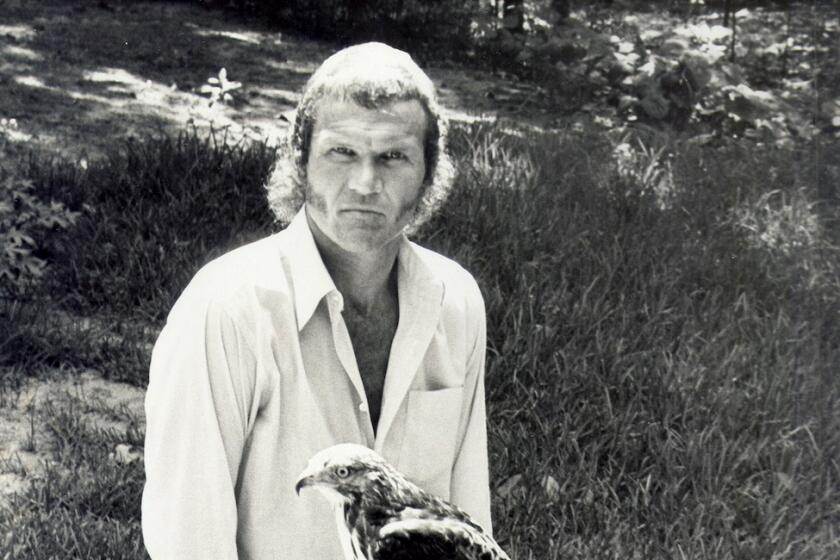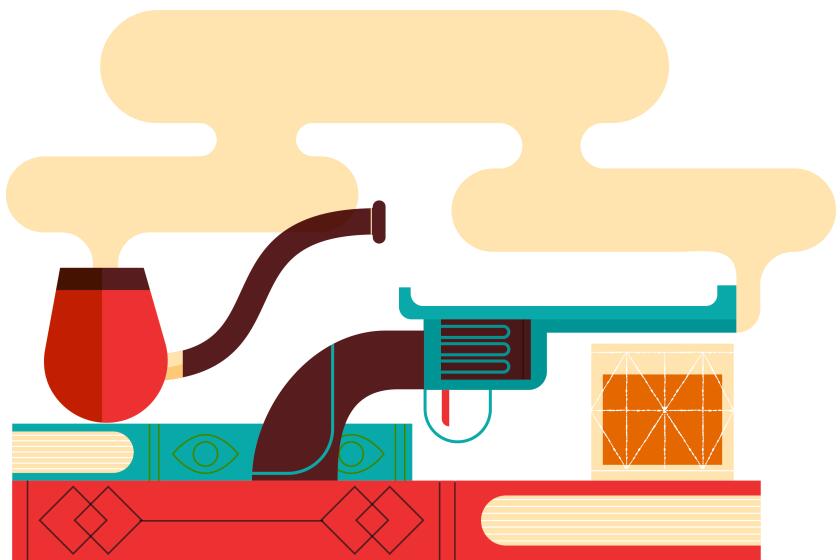A lightning rod in Australia, author Helen Garner is 80 and ready for your acclaim
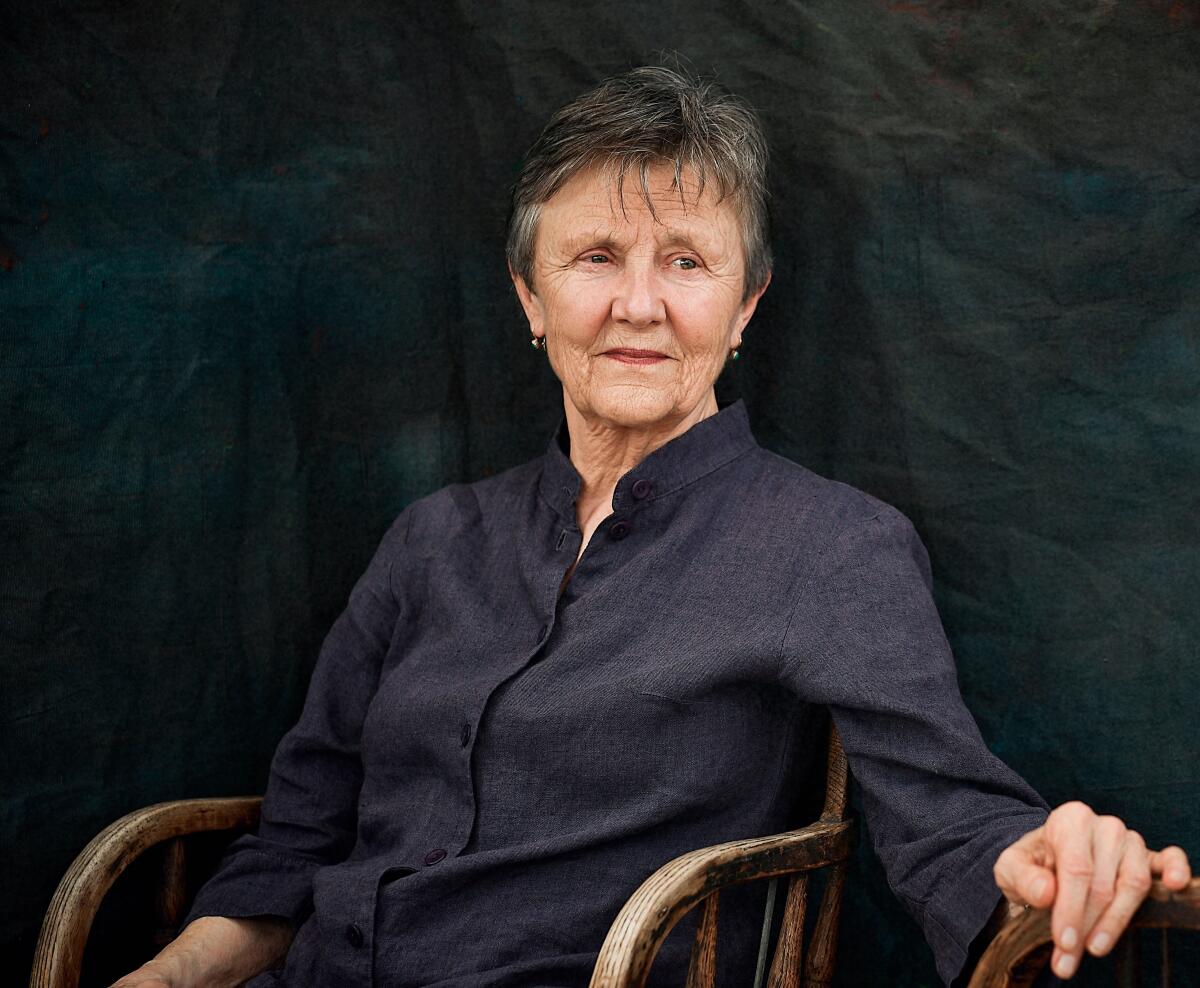
- Share via
On the Shelf
Re-issued books by Helen Garner
The Children’s Bach
Pantheon: 176 pages, $25
This House of Grief: The Story of a Murder Trial
Pantheon: 320 pages, $27
If you buy books linked on our site, The Times may earn a commission from Bookshop.org, whose fees support independent bookstores.
On the day of our interview, Helen Garner didn’t win the Nobel Prize in literature.
“Imagine there are people who actually think they might win it, and they get all excited, and it sort of breaks my heart that anyone would hold this hope and every year they feel disappointed,” says Garner, speaking on video from her home in Australia. “That’s really awful.”
Garner would be forgiven for considering herself a Nobel contender, considering her five-decade body of acclaimed work. Between 1977 and 1992, she published four novels set in the most bohemian neighborhoods of Melbourne, each drawing on her own rather bohemian life. This month, Pantheon Books will reissue her 1984 novel, “The Children’s Bach,” as well as her 2014 true-crime book, “The House of Grief,” about Robert Farquharson, whose three children died after he slid their car into a pond in Winchelsea, Victoria. Next February, Pantheon will reissue “Monkey Grip,” about a woman in love with a heroin addict, which was adapted into a film in 1982.
From ‘Unsolved Mysteries’ to ‘I’ll Be Gone in the Dark,’ true crime is ubiquitous on TV. But it may not be as impactful as its cultural footprint suggests.
At 80, Garner now lives in the less hectic town of Geelong, tending a large garden and her “chooks” (chickens) and keeping her distance from the literary scrum. However, she admits she still has more in common with her Nobel-aspiring colleagues than she’d sometimes like.
“I’d love to think that I had arrived at this peaceful place, that I don’t suffer about these things anymore,” she says. “But there’s still some tiny screaming little speck of ego, which I think is in everyone, left over from earliest infancy, which is going, ‘Love me love me I want to be loved.’ It’s like an infant craving for what you need to stay alive.”
Perhaps this is why she published her diaries during Australia’s long pandemic lockdown? “My writing in my diary is the best writing that I do,” she says. “And it’s because it’s sort of free. I’m not imagining it as work. I’m doing it for that sort of pleasure of writing.” She adds that some colleagues dismissed these private writings. “They said, ‘This isn’t literature.’ But it’s about the joy of handling language. You turn yourself into a writer by making sentences.”
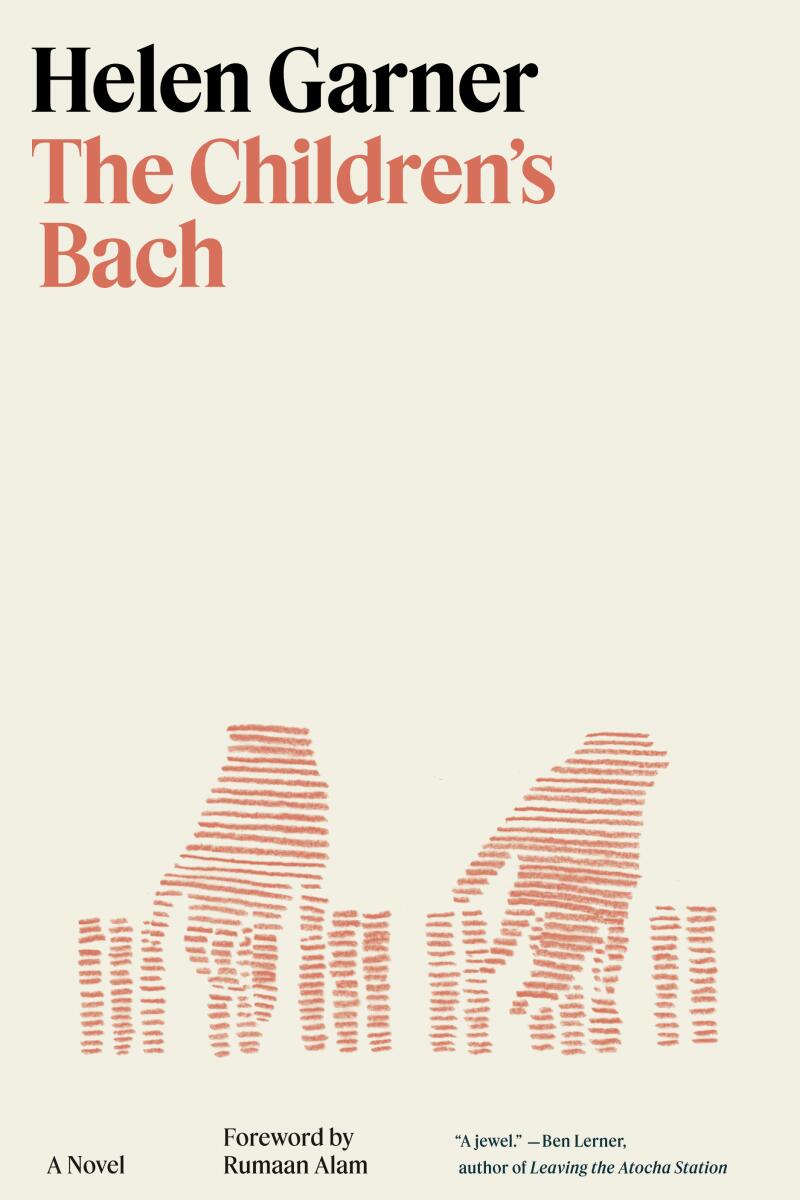
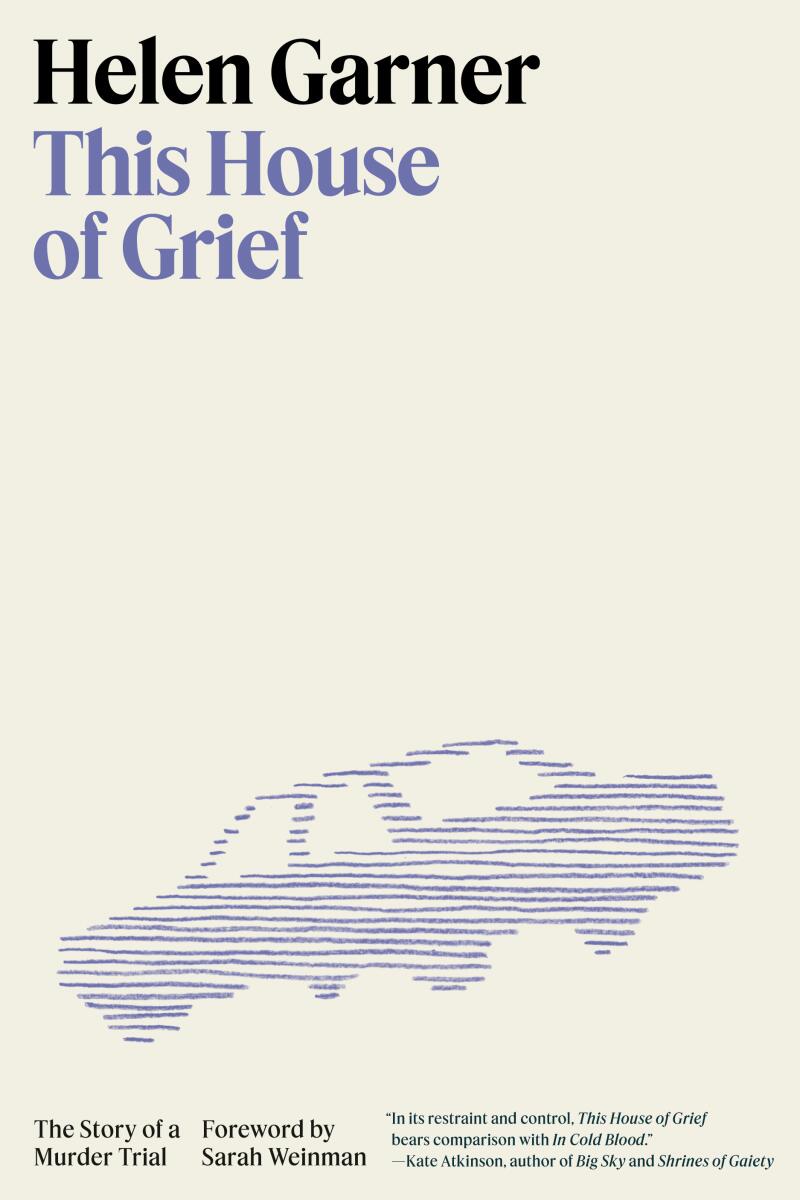
(Pantheon Books)
Garner has never worried much about the risk of ostracism, which she has repeatedly courted by sticking to her own artistic code and her own moral compass. In 1995’s “The First Stone,” she wrote about the case of a university colleague accused of sexual misconduct. Years before #MeToo, Garner’s book generated controversy and condemnation for allegedly minimizing the incident.
“Feminism’s been terribly important to me,” she says. “It sort of made my life possible in many ways. I’ve always thought of myself as a feminist, and I suppose I still do. But when I researched that story I hit the orthodoxy head on, and I was shocked by it.” Women she spoke with were “scornful” of her approach. “I felt their contempt. I felt this huge generational shift in feminism, and I found it painful. I felt it went against other things in me that I valued, such as the ability to empathize with all sorts of people, men included.”
“My Dark Vanessa” is the latest and most unsettlingly effective book in a timely genre.
“Monkey Grip,” based on Garner’s own relationship with an addict, drew backlash from other quarters for depicting enabling behavior.
“Heroin was a sort of recent arrival in Australia,” she explains. “It had this huge mystique about it, a kind of horror mystique. It was perhaps seen as a death sentence, a sort of suicidal urge. I do know that when I wrote that book, anybody we knew who was using seemed to be going further out than the rest of us could handle.”
Garner knows the feeling of testing the outer limits — albeit in writing — and especially in her true-crime work. That began in the early ’80s when she sat in on the trial of a couple accused of murdering two teenagers. One victim had been a stepdaughter of a friend, she says, “and I accompanied him to the courtroom. I look back and if I was going to be completely truthful, I’d have to say that I saw this as a chance to get close to something.”
Just before closing arguments, the judge instructed the jury that they could not find the woman guilty; the evidence against her was not strong enough to support a conviction. “I, at that moment, had wanted to see those two people strung up outside the court,” she says. “But when the judge said that, I had this blinding realization, almost like the spirit of the law was in the room, the mighty force of reason, and I felt sort of awed by it.”
If there’s one impulse that connects all her work — the true-crime books and those that earned her grief for airing uncomfortable truths — it is the recognition of the humanity of villains and victims alike.
Why did Penguin decide to reissue a memoir and a novel by Harry Crews, a dead white Southern writer? His influence — and his truths — run deep.
“What happens when you sit in court is that you’re imagining you’ll see a demonic being in the accused,” she says, “but it’s more likely that you see a broken person. They’ve gone out further than we handle. On the day of Farquharson’s preliminary hearing, it happened that he and I walked in at the same time, and he held the door for me, we gave each other eye contact. I didn’t think, ‘Oh, what a lovely guy.’ I did think, ‘Oh, he’s a person. He’s an actual human being.’ And as such, he deserves — not my respect; that’s something people earn — but my attention.”
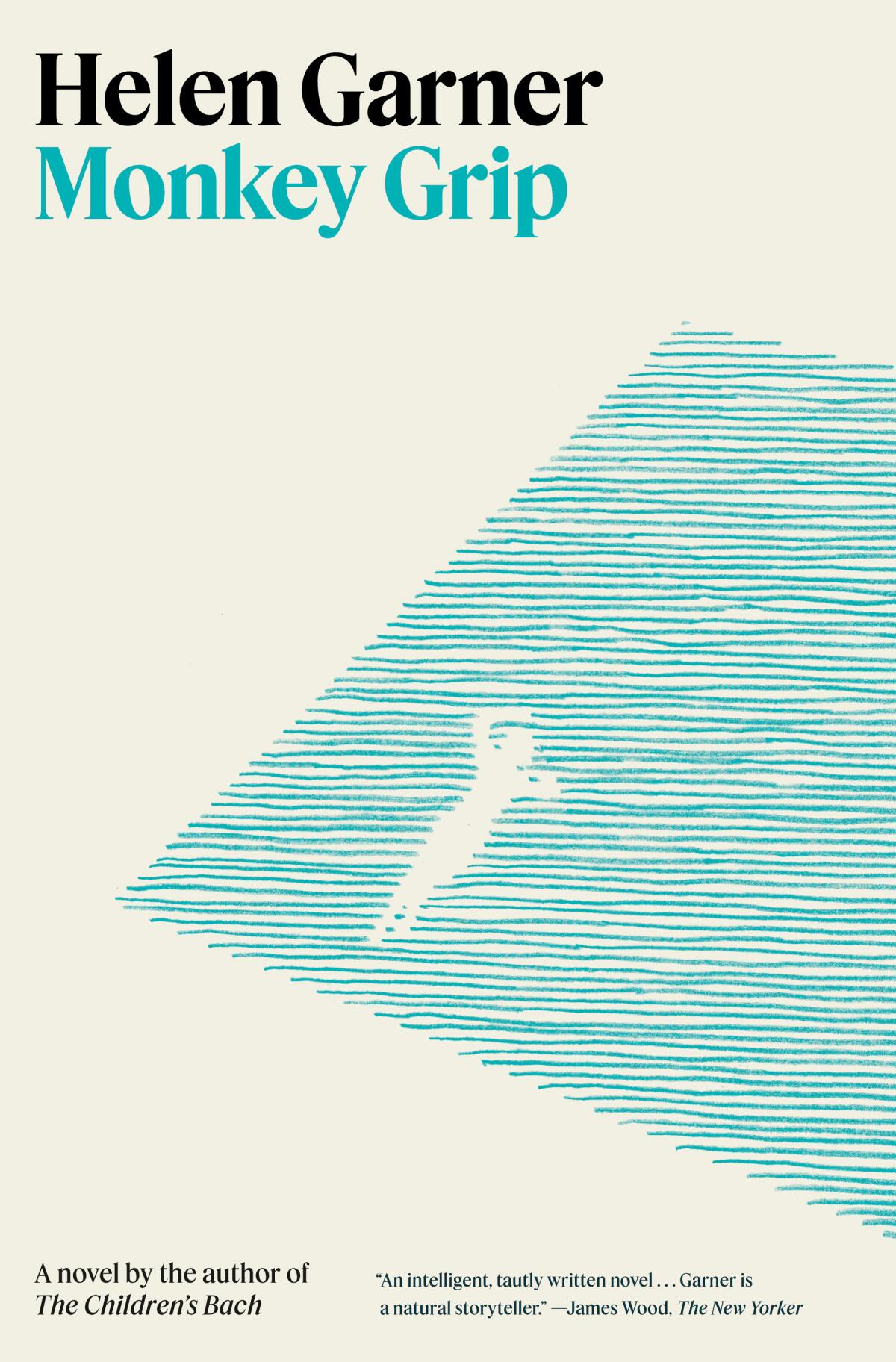
Her life of looking closely at those we would rather revile or ignore has earned her attention in return. And her revival here in the States will surely renew it. About that, she is slightly ambivalent. International recognition “was never my aim,” she says. “I always thought I was writing for people who were going to know what I was talking about and that I wouldn’t have to explain my country.”
Garner’s newfound acclaim has caught her by surprise, and she worried that she wouldn’t be up for a tour and its concomitant attention. “I’ve actually been quite scared about it. I think, ‘God, is this too late? Is it come too late?’
“But this interview is making me feel like it will be fun,” she continues. “I do know that there are Australian writers who think they’re never going to be real unless they get published in the United States. But I’ve never felt that. I’ve always felt very rooted here.”
The 13 most essential L.A. crime books — from Chandler, Hughes, Mosley and Ellroy to Steph Cha and Ivy Pochoda, with some ‘Helter Skelter’ in between.
As for that Nobel Prize? Anything could happen, says Garner. She’s reminded of the addict whose life inspired “Monkey Grip.” Heroin was hardly his death sentence. She reports that he kicked his habit and is now a happy grandfather. “We’re on warm terms,” she adds. As she well knows and as anyone who reads her work will learn, no story has to have an expected ending.
Patrick is a freelance critic, podcaster and author of the memoir “Life B.”
More to Read
Sign up for our Book Club newsletter
Get the latest news, events and more from the Los Angeles Times Book Club, and help us get L.A. reading and talking.
You may occasionally receive promotional content from the Los Angeles Times.
